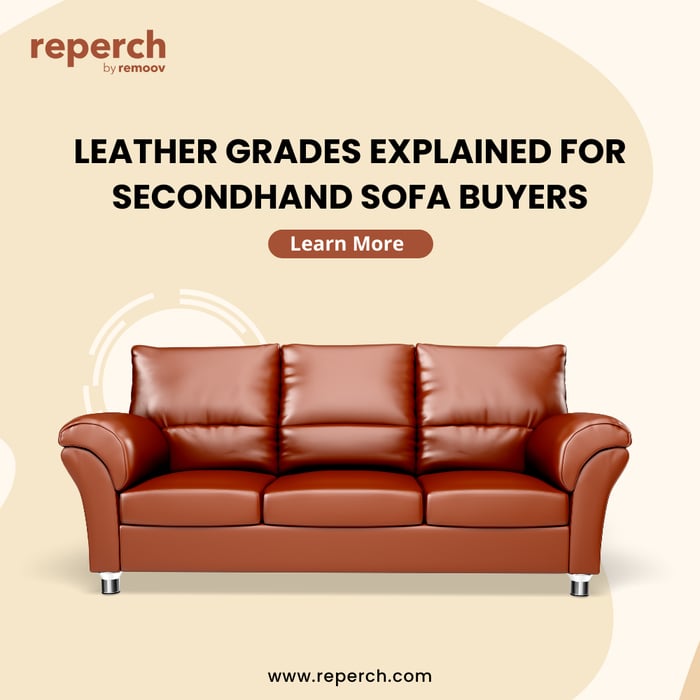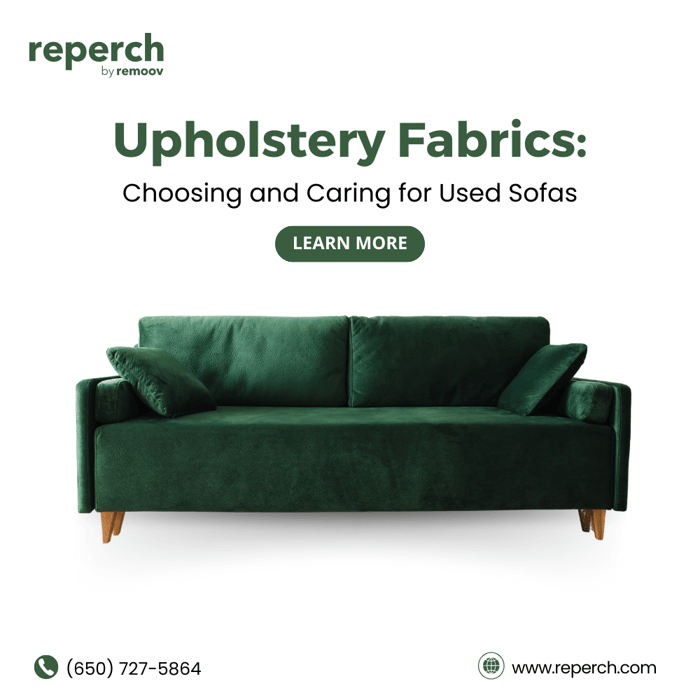When shopping for a secondhand leather sofa, it’s easy to get distracted by color, style, or price. But what truly determines a leather sofa’s long-term comfort and durability is the quality of the leather itself. Not all leather is created equal. Understanding the different grades of leather can help you make a smarter buying decision.
In this guide, we’ll walk you through the key leather grades, how they’re made, how to identify them, and what they mean for secondhand sofa shoppers.
Why Leather Grades Matter for Secondhand Furniture
Leather furniture can last decades or just a few years depending on the material and construction. A secondhand sofa made with high-quality leather may still look great and feel comfortable after years of use, while one made with lower-grade leather might show cracks, flaking, or loss of texture.
That’s why understanding leather grades is essential. It helps you determine:
Durability: How well the leather has aged and how long it will continue to hold up
Repairability: Whether scratches or blemishes can be treated
Value: If the price of the secondhand sofa matches the quality of the leather
Let’s break down the most common leather types you’ll encounter.
1. Full-Grain Leather: The Best of the Best
What it is: Full-grain leather is made from the top layer of the hide, with all of its natural grain intact. It’s the most durable and highest-quality leather available.
Why it’s great for sofas:
Naturally strong and thick
Develops a rich patina over time
Breathable and comfortable
How to spot it:
Visible natural imperfections (scars, pores)
No artificial patterns embossed
Thick, heavy feel
Used sofa tip: If you find a full-grain leather sofa secondhand, it's likely to outlast almost any other material even with visible wear.
2. Top-Grain Leather: Sleek and Durable
What it is: Top-grain leather also comes from the upper hide, but it’s sanded and finished to remove imperfections and create a more uniform appearance.
Why it’s common:
Looks clean and smooth
Resists stains better than full-grain
Often used in mid- to high-end furniture
How to spot it:
Smooth, even color
Slightly lighter weight than full-grain
May have a pigmented finish or protective coating
Used sofa tip: Look for minor scuffs or fading in well-used spots. Top-grain leather is still high quality, but may need some conditioning to restore luster.
3. Split-Grain Leather: Softer, but Less Durable
What it is: Split-grain leather is taken from the lower layers of the hide. It lacks the tight fiber structure of top layers and is often made into suede.
Pros and cons:
Soft and pliable
Prone to wear, stretching, and damage over time
Absorbs spills more easily
How to spot it:
Suede-like or fuzzy texture
Lacks visible grain pattern
May feel lighter and thinner
Used sofa tip: A split-leather sofa may feel soft at first but look closely for sagging cushions, fading, or worn spots. These are signs of aging you can’t easily reverse.
4. Genuine Leather: Real, But Not Always Great
What it is: “Genuine leather” is a marketing term that refers to leather made from the lower-quality parts of the hide. It’s technically leather, but heavily processed.
What to know:
Often embossed to mimic grain
Low durability and prone to peeling or cracking
Lower price point
How to spot it:
“Genuine leather” stamped somewhere
Thin, overly uniform surface
Backing may feel synthetic or papery
Used sofa tip: Be cautious with used genuine leather sofas. If they haven’t been well-maintained, they may be too worn to repair or refurbish.
5. Bonded Leather: Mostly Not Leather
What it is: Bonded leather is made from leather scraps and fibers blended with polyurethane and adhesives. It contains very little actual leather.
Why it’s cheap:
Looks like leather at first
Much cheaper to produce
Peels or flakes easily over time
How to spot it:
Very smooth, plastic-like finish
Thin material
Peeling or cracking on used furniture is common
Used sofa tip: Skip it. If a secondhand sofa is made of bonded leather, it may already be breaking down. It’s difficult to repair and won’t last much longer.
Quick Test: How to Identify Leather on a Used Sofa
Not sure what you’re dealing with? Try these simple tests when shopping secondhand:
1. Smell test: Real leather has a rich, earthy smell. Faux or bonded leather often smells like plastic or chemicals.
2. Touch test: High-grade leather feels soft and warm to the touch, while synthetics or bonded leather feel cool and stiff.
3. Backing test: If possible, peek under a cushion or seam. You might see a fabric backing (common in bonded leather) or raw hide (in real leather).
4. Fire test (for personal goods only): This is not recommended on store furniture, but for home testing: real leather will not melt under brief flame exposure. Synthetics will.
Is Leather Furniture Always Better?
While leather is known for its durability, it’s not always the right choice. Some synthetic and vegan leathers offer great style and longevity, especially for those avoiding animal products. But when it comes to secondhand shopping, authentic full-grain or top-grain leather pieces usually offer the best value and performance.
Final Tips for Buying Secondhand Leather Sofas
Ask about the brand: High-end furniture brands are more likely to use better leather
Inspect wear spots: Check arms, seat cushions, and backs for signs of cracking, sagging, or fading
Look for tags: Many sofas have tags under the cushions or frames listing leather type or origin
Factor in repairs: Leather conditioners can restore minor dryness or scuffs, but peeling bonded leather can’t be fixed
Why It’s Worth It
If you find a high-quality leather sofa in good condition, it's a secondhand score that can last for many more years. With just a bit of research and inspection, you’ll know which types of leather are worth your money and which ones to avoid.
Reperch Makes It Easier
At Reperch, we help you shop smarter for secondhand furniture by curating high-quality listings, offering resale guidance, and providing tips just like this. Whether you're a first-time buyer or a vintage leather expert, we’re here to help you find pieces that look great and last.








